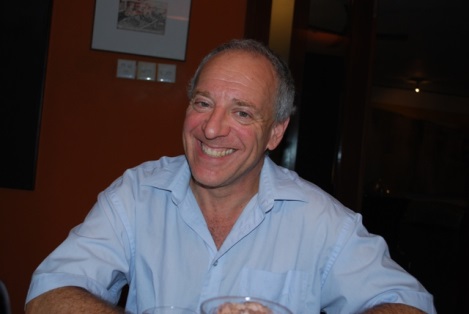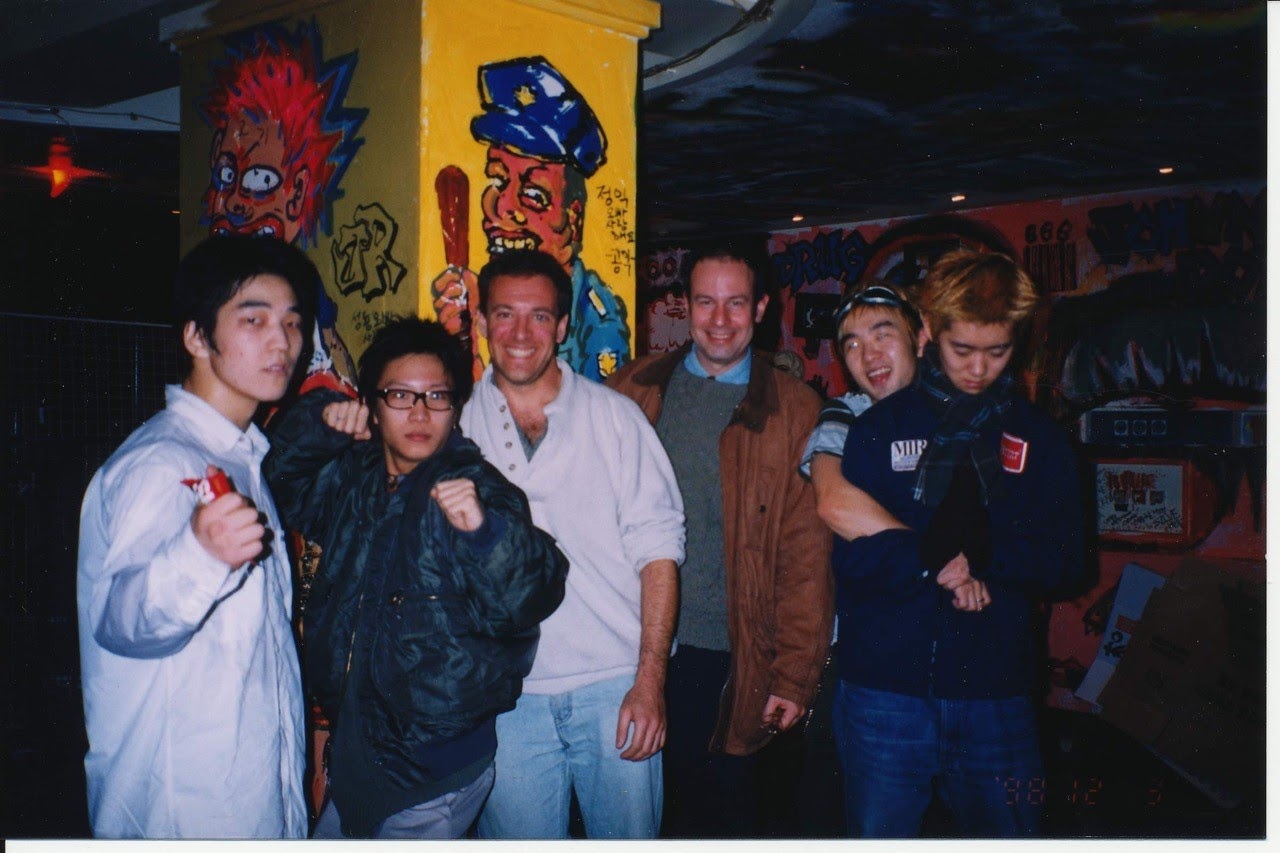- 한국어
- English
- 日本語
- 中文
- العربية
- Español
- Français
- Deutsch
- Pусский
- Tiếng Việt
- Indonesian
By Honorary Reporter Ishani Ghosh from U.S.
Photo = Stephen Epstein
Stephen Epstein is the director of the Asian Languages and Cultures Program at Victoria University of Wellington in New Zealand. He earned his bachelor's in classics from Harvard University and a master's in Greek and a Ph.D. in classics from the University of California-Berkeley. He specializes in contemporary Korean society, literature and pop culture, literary translation, globalization and social change, and Indonesian fiction.
The following are excerpts from an interview with him on his experience as a Korean studies professor in New Zealand and his thoughts on the field.

Stephen Epstein
You studied classics at Harvard and Cal-Berkeley. How did you get interested in Korea?
I'd studied Latin and Greek in high school but originally planned to major in East Asian languages and civilizations at Harvard. But back then, in the early 1980s, I thought Chinese would only lead to a business career, which I realized I wasn't interested in. I decided to major in classics, but my interest in East Asia continued, and at university, I had some close Korean American friends. While in grad school, I took a course on Korean literature in translation and that really hooked me in. After that course, I spent several weeks in Korea in summer 1987, a fascinating time to be there with the protests for the democracy movement. Though I remained in classics for several years, my interest in Korea continued to grow.
While a grad student at Berkeley, you attended Yonsei University's Korean Language Institute. How did this raise your interest in Korea?
The year I spent at Yonsei changed my life and convinced me that contemporary Korea was where my main research interests lay. Developing close personal connections and the sense of being able to watch history unfold in Korea during a dramatic period was compelling. Once I had the experience of becoming fully immersed in a culture I was studying, returning to work on the ancient Mediterranean through the mediation of a gappy textual record became much harder at a personal level.
What inspired you to become a professor and what are the rewards of being a scholar of Korean studies?
I think I was probably always most cut out for an academic career, it was just a matter of realizing that it would be feasible. My awesome high school Latin teacher, who most influenced me, had a Ph.D. As a result, I assumed no university jobs were available in classics. When I realized as a college sophomore that there were such jobs after discovering the job listings at the classics library, I thought I'd at least have a go at it.
The most rewarding aspect of an academic career for me is connecting with students and the feeling of making a positive difference in their lives. It's also rewarding to write something I'm happy with and hearing that it's proved insightful for others. Many colleagues in the field have become close friends, so a sense of Korean studies community is also a source of joy. My interest in Korea also often focuses on the nation's relationships with the wider world, so my research has allowed me to visit interesting places like Yanji, China, and Almaty, Kazakhstan, where there are substantial Korean diaspora communities.
How have you grasped aspects of Korea as both a non-Korean and a non-resident of Korea? What issues have you faced as a foreign expert on Korea and how have you overcome them?
Not being a native speaker of Korean and starting my study of the language at a relatively late age are my biggest challenges. I've spent about eight years on the Korean Peninsula, and during the 2007-12 period, I was in Korea more often than not. But I've never lived there longer than a year and a half at a time.
My regular going back and forth has pluses and minuses. It's important to be there on the ground and having conversations and experiences with a broad swath of society, but there is also an element of objectivity that comes from being able to consider what's going on at a distance. I've made some 75 trips to Korea at this point and been there at least once almost every year since 1986. But that level of movement also creates disruptions. Since the advent of the internet and especially with the arrival of online platforms like YouTube, it's become much easier to stay connected.

Stephen Epstein (third from left) in 1999 poses with members of Crying Nut, a popular Korean punk band.
What aspects of contemporary Korean society, literature, popular culture and literary translation interest you?
I'm interested in a broad range of issues, but most of them can be subsumed within the broader rubric of thinking of Korea's relationships with the world beyond its borders. I've worked a lot on the intersection between pop culture and international relations, and media images of Korea's regional neighbors. In particular, I've examined the portrayals of North Korea in South Korean pop culture. As a music fan, I'm especially interested in the underground music scene. My favorite time in Korea was probably participating in the early growth of the punk rock scene in Seoul's Hongdae district.
What advice do you have for students who want to attend university in Korea or even become professors in your field?
A great advantage of studying in Korea now is that younger people can develop their language skills well before embarking on formal courses. I urge those interested in Korea to avail of the remarkable resources available online and absorb as much content as they can in areas that appeal to them from films and dramas to interviews, variety shows, lectures, news and more. You can develop listening comprehension skills and vocabulary while learning about Korea.
For those who wish to go further, however, the difficult truth is that an academic lifestyle has become harder than ever as universities face the repercussions of the coronavirus and its impact. I urge those interested in Korea to consider very seriously whether academia is the necessary end goal. I used to feel that brilliance and diligence would eventually bring about a positive outcome but no longer. Now real luck is also required. My heart goes out to those struggling to gain a foothold in the field.
That said, for those whose passion is Korea, greater knowledge can lead to opportunities. If you feel there is nothing you'd rather do with your life for several years than deepening your knowledge of Korea, go for it and work hard. Just don't stake too much of your own identity on becoming a professor and don't go to graduate school if it means significant debt. Fortunately, Korean is one of the few languages experiencing growth in enrollment, and assuming the world digs itself out of the pandemic soon, plenty of interesting opportunities should remain.
enny0611@korea.kr
*This article is written by a Korea.net Honorary Reporter. Our group of Honorary Reporters are from all around the world, and they share with Korea.net their love and passion for all things Korean.
Most popular
- Korea.net welcomes 2025 K-influencers, Honorary Reporters
- 2025 Honorary Reporter class pledges to spread 'real Korea' worldwide
- US urged to exempt tariffs on Korea in first '2+2' trade talks
- 'Gangnam Style,' 'Baby Shark' make YouTube's 2005-25 best list
- Korean culture festival in Cuba marks 1st year of bilateral ties
